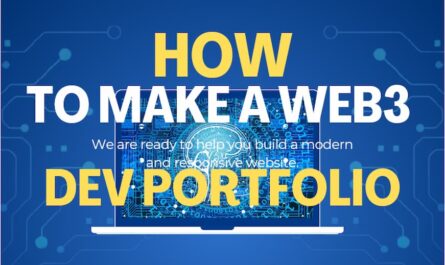Capturing Attention as a Unity Game Developer.
Picture this: it’s a rainy afternoon, your coffee is just right, and you stumble upon a Unity game portfolio that actually makes you pause, everything just pulls you right in. As a unity game developer, you know the effort and creativity it takes to craft something that not only showcases your technical skills but your personality too. The goal is to create an experience that helps you stand out, land your dream job, or connect with collaborators, thereby making every detail important.
What Recruiters Look For in a Unity Game Developer Portfolio
Firstly, understanding what recruiters and studios want makes a world of difference. Portfolios aren’t just project lists; you should build an online space that lets your achievements, style, problem-solving, and passion breathe.
Meanwhile, generic projects won’t cut it, you should provide context, challenges overcome, and the impact of your decisions. For unity game developers, this storytelling is your bread and butter.
Your homepage should scream “unity game developer.” The first paragraph is important because it both welcomes visitors and sends clear SEO signals. For example, “Welcome to my Unity Game Developer portfolio, where I share interactive experiences and technical journeys that shaped me.” This usage is natural and reader friendly.
Highlighting Technical Diversity with Effective Storytelling
Secondly, successful unity game developer portfolios combine clarity with storytelling. Don’t flood your portfolio with every prototype; pick projects that highlight diverse skills, custom shaders, AI, multiplayer, UI/UX, VR/AR. Each project should include a post-mortem narrative explaining why it mattered. For example, describe how you implemented dynamic lighting or wrote enemy AI scripts. Evidence through images and videos makes your work tangible.
Choosing the Right Platform and Ensuring Accessibility
On the other hand, hosting matters. Around 78% of hiring managers prefer portfolios on personal domains rather than third-party platforms. Custom sites let you use tailored layouts and branding. Also, fast load times, mobile responsiveness, and clear navigation impact user experience and SEO. Consider adding a blog to share Unity tips and tutorials, known to boost SEO and authority.
Creating a Strong Personal Brand as a Unity Game Developer
Adding a personal touch grabs attention. A clear statement like “unity game developer passionate about procedural world generation” sets expectations. Include a friendly bio, photo, social media links (LinkedIn, GitHub, Twitter), and an easy-to-find contact form or email link. Your resume should be downloadable but not cluttering the homepage.
Breaking Down Unity Game Developer Projects: Storytelling That Matters
Each project should cover concept/goals, tech stack/process, and lessons learned. Explain what Unity assets or scripting choices you made, how you debugged issues or optimized performance, and what you’d do differently. Showing quotes from community feedback also highlights adaptability, an important skill in game development teams.
Secondly, keep current with VR, AR, and cross-platform projects. Embedding playable builds via Unity WebGL or walkthrough videos increases engagement. Mention tools like Cinemachine or Odin Inspector to show you’re up-to-date. Sharing selected well-documented GitHub repos can also amplify credibility.
Iterating and Gathering Feedback on Your Unity Game Developer Portfolio
Feedback fuels improvement. You can ask fellow unity game developers, mentors, or even non-developers for opinions. Use tools such as Google Analytics to test layouts or discover popular projects. Meanwhile, regular updates, like blog posts on new Unity features or asset store reviews, keep your portfolio fresh, thereby signaling activity and commitment.
Focusing on Your Strengths as a Unity Game Developer
It’s tempting to showcase everything, but focusing on your strongest skills will give you an edge. Whether that’s shader programming or narrative design, depth often outweighs breadth. Including collaborative projects also demonstrates teamwork and version control experience with Git.
Adding Personality and Authenticity to Your Unity Game Developer Portfolio
Storytelling isn’t only technical. Share anecdotes like a last-minute fix before a showcase, or lessons learned at Unity meet-ups or game jams. Testimonials from peers or professors add trust: “Working with Jane as a unity game developer improved our team morale.”
Recommendations for Unity Game Developer Portfolios
Always proofread and keep your tone clean. Use plain English so even non-developers enjoy your story. Link to helpful external resources like Unity Learn or technical talks Don’t forget to show personality, you’re uniquely you, not just another unity game developer. Mention hobbies, quirky projects, and side gigs that reveal your creative flair.
If you’re interested in playing games to win money, this guide is very helpful for Games you can win money on. Check it out!



